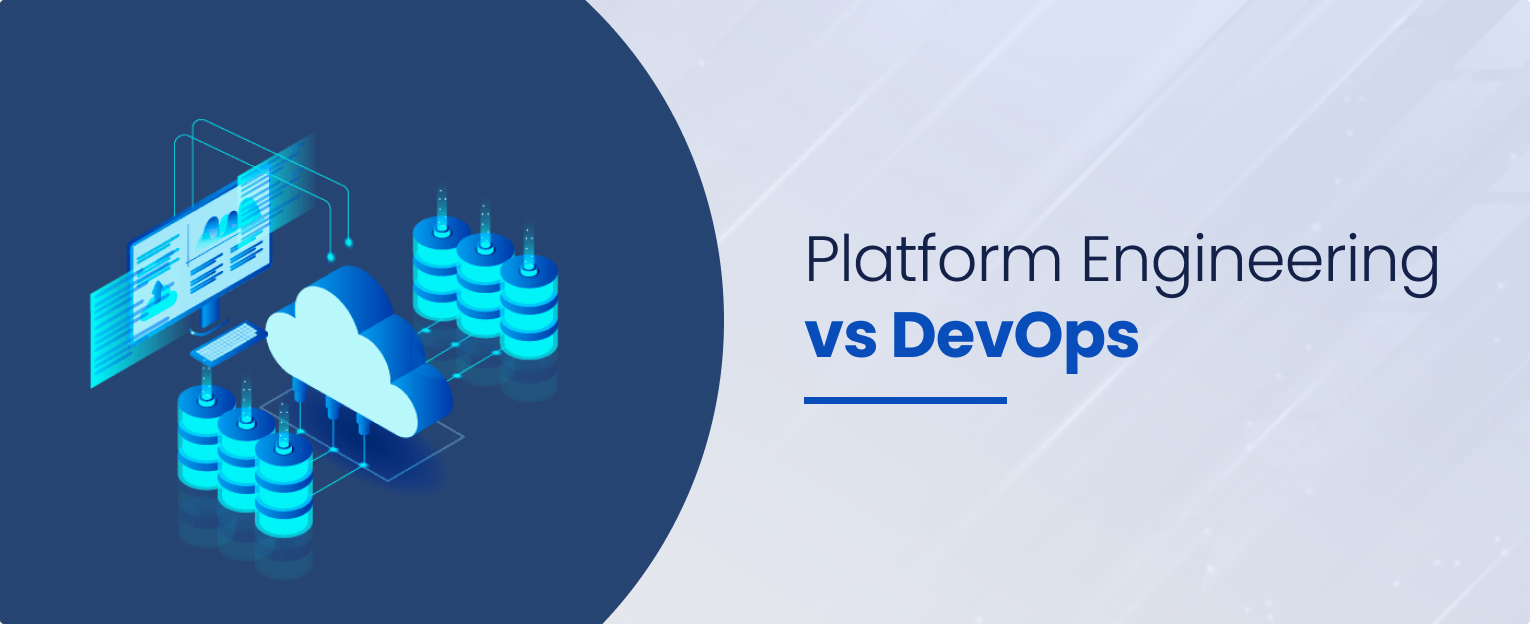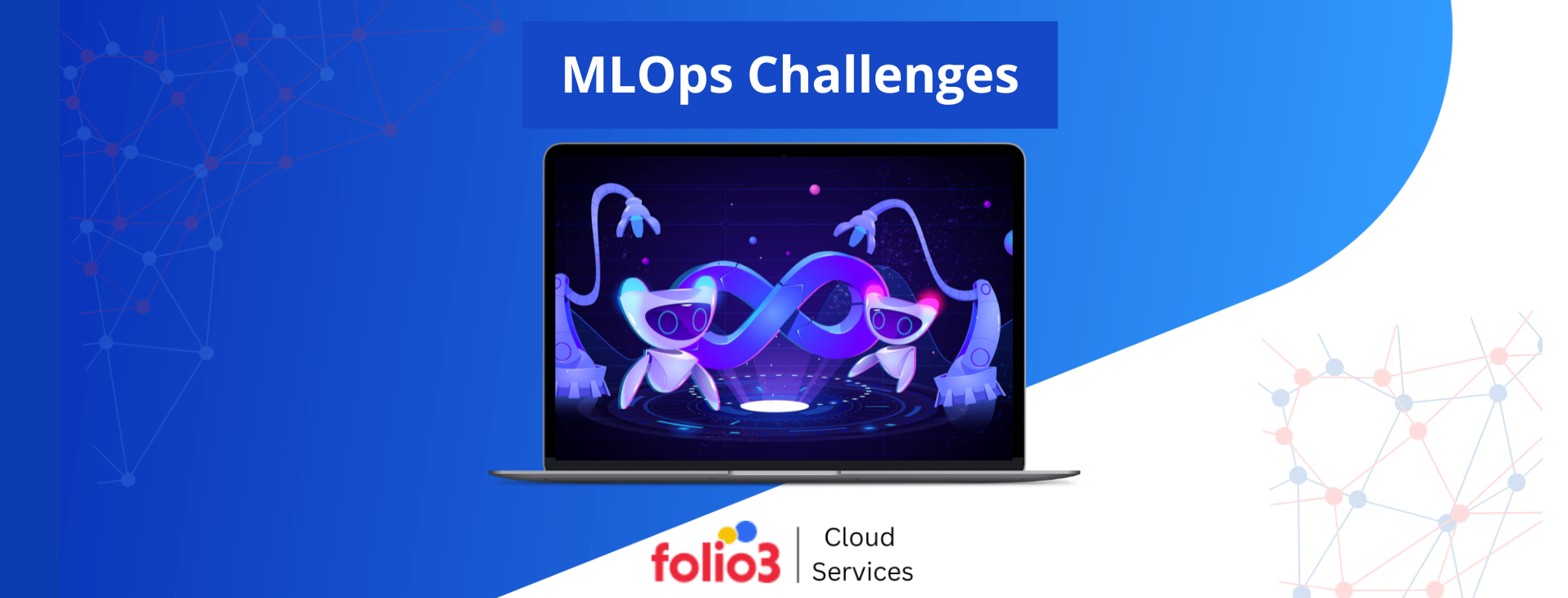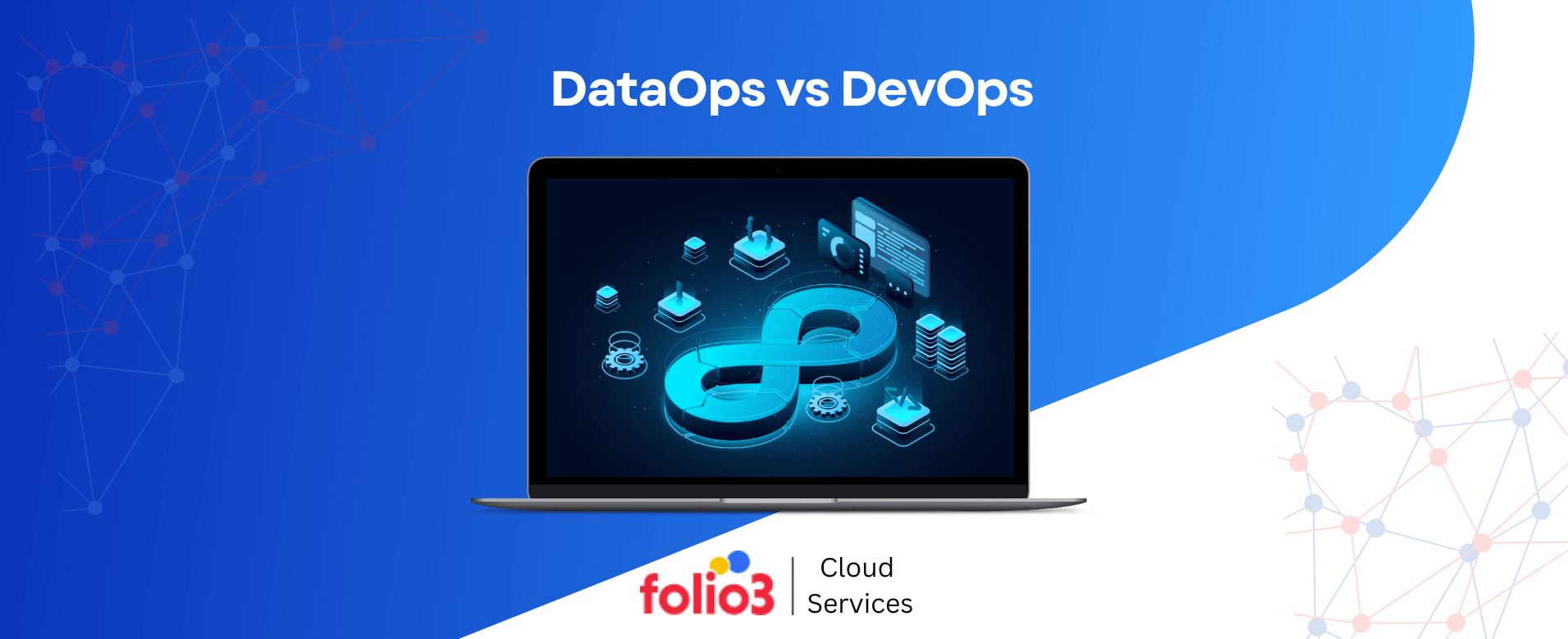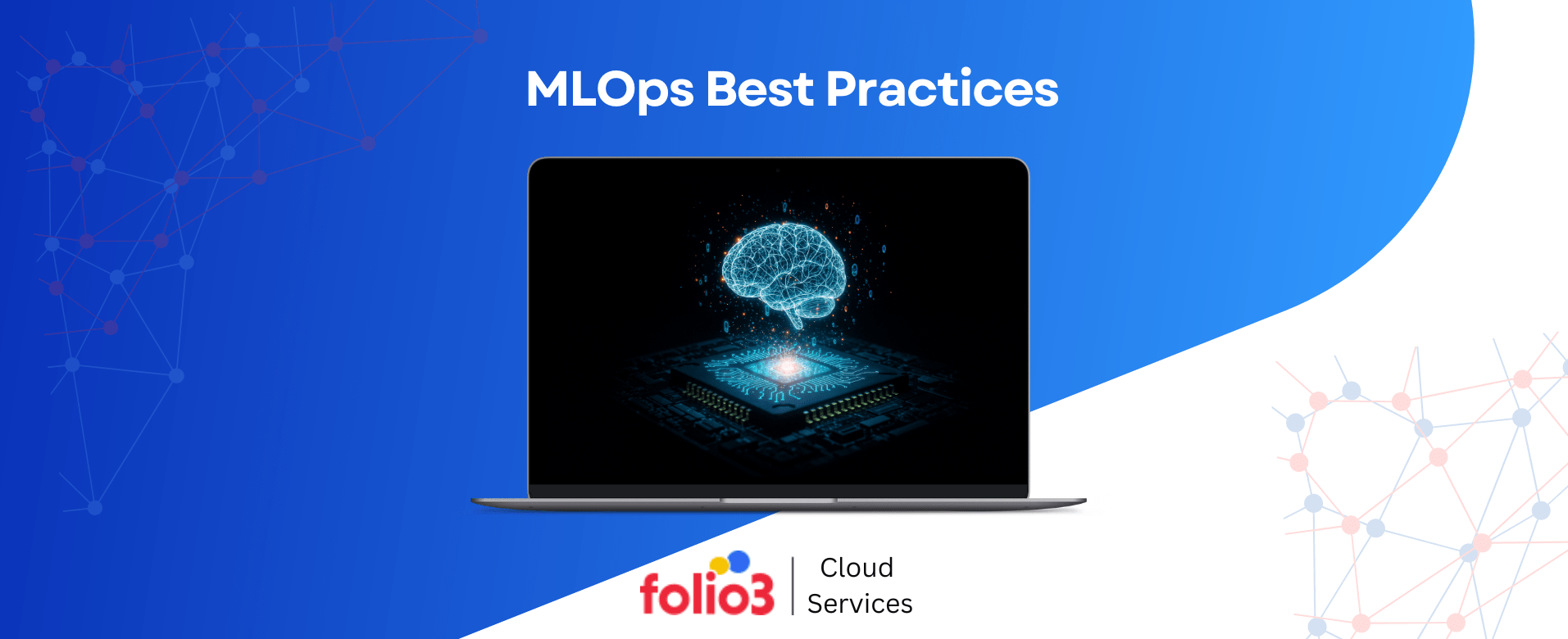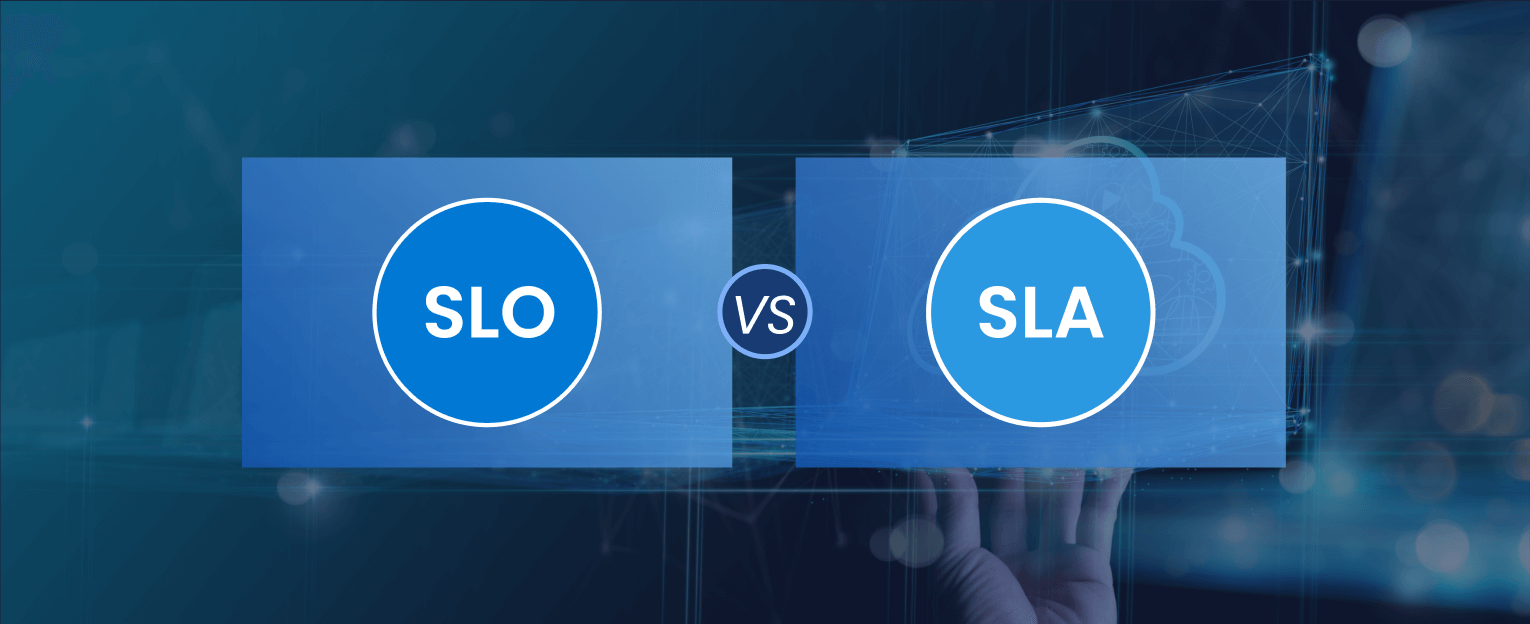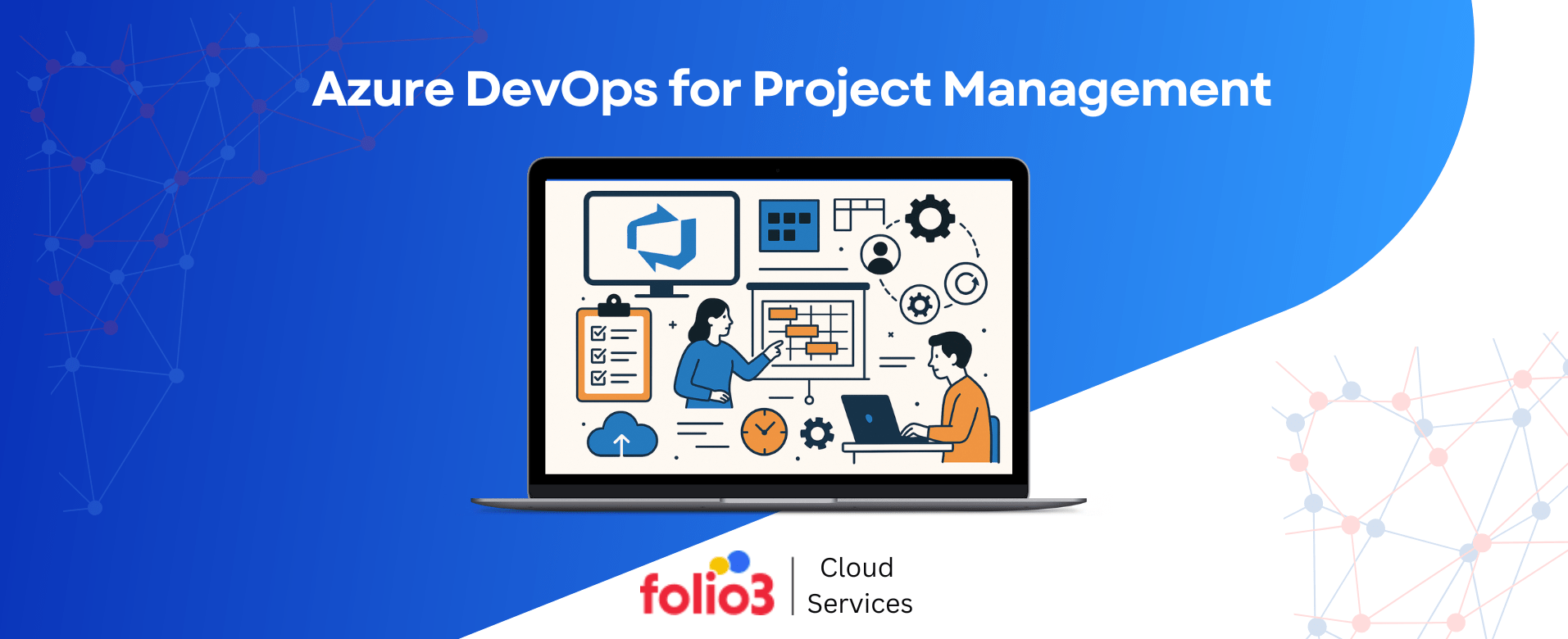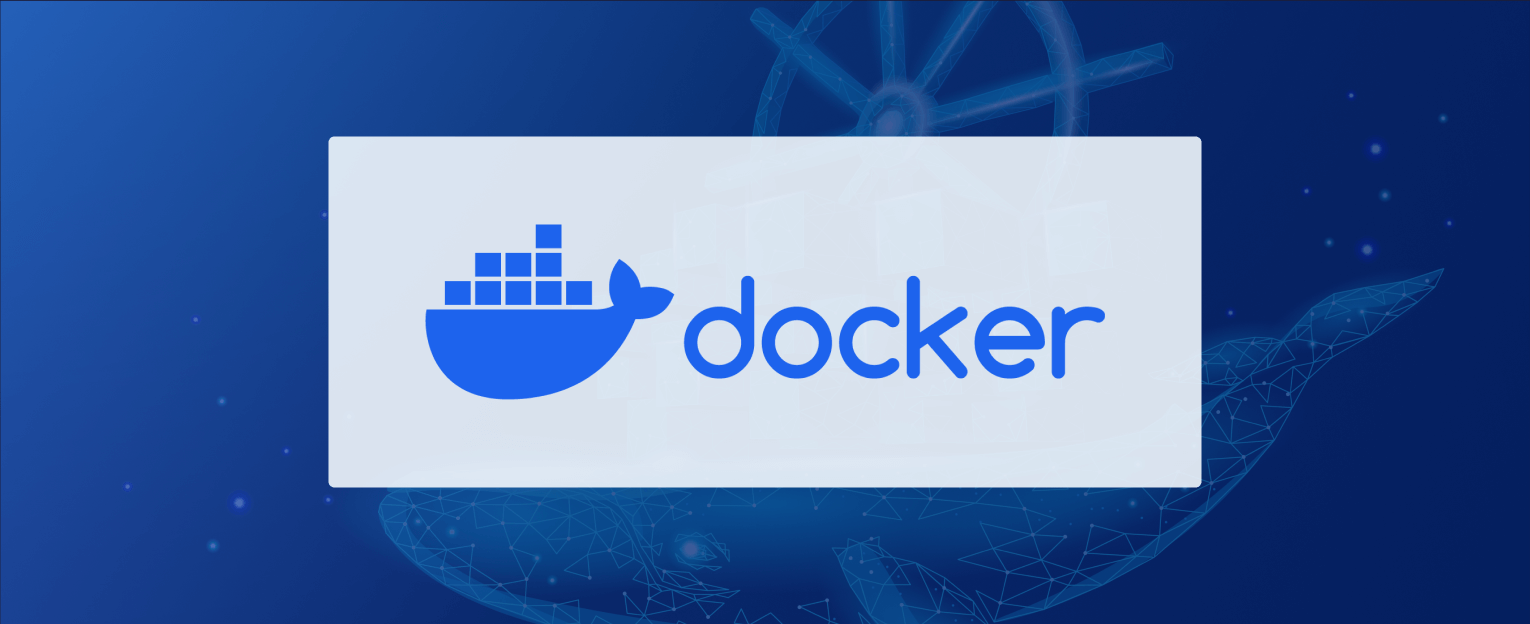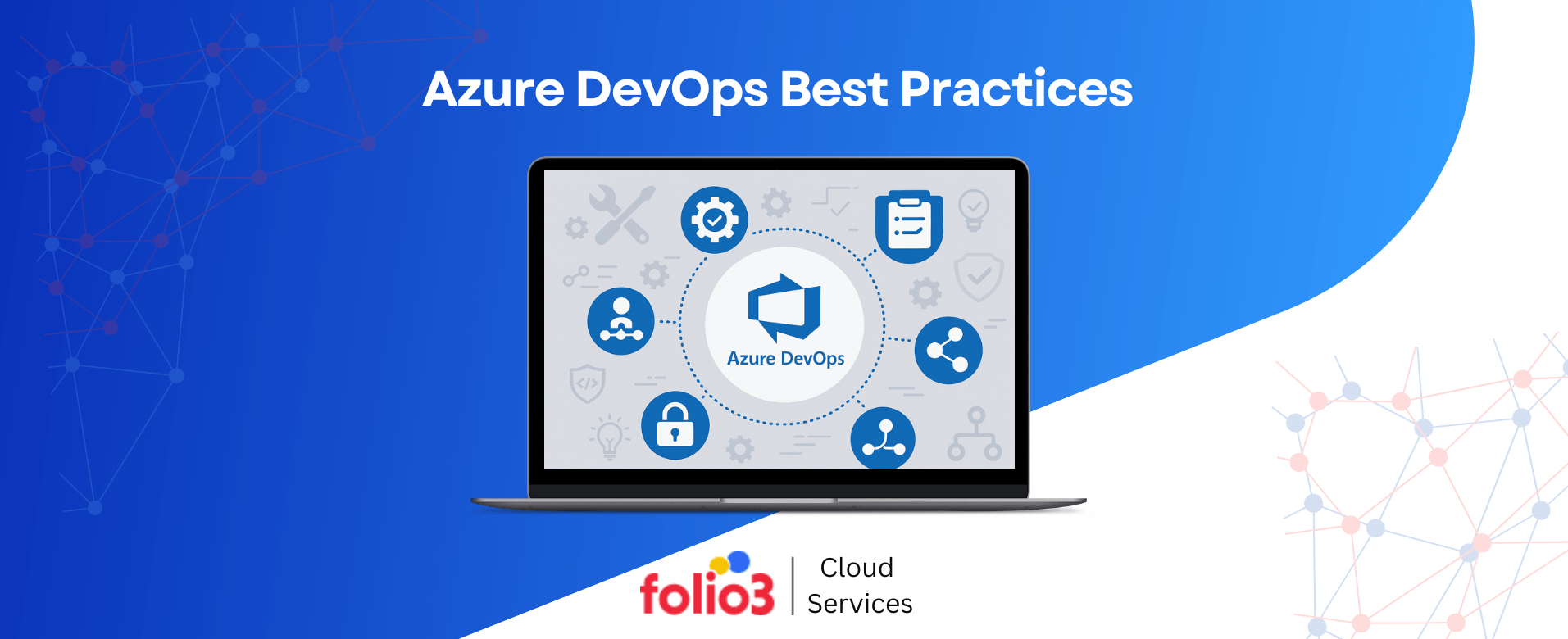We are now currently a part of an evolving software development industry where businesses strive to adopt methodologies that accelerate delivery, improve efficiency, and maintain operational excellence.
Among these methodologies, Platform Engineering and DevOps are the two distinct yet interconnected approaches that play pivotal roles. But what sets them apart, and how can organizations determine which approach suits their needs?
While Platform Engineering focuses on creating standardized, developer-friendly tools and platforms, DevOps emphasizes collaboration, automation, and end-to-end delivery practices.
According to a 2023 State of DevOps Report by Puppet, organizations with high DevOps maturity experienced 208 times more frequent deployments and 106 times faster lead times than their less mature counterparts.
Similarly, companies implementing platform engineering saw a 50% reduction in their software development lifecycle (SDLC) on average and increased productivity, as highlighted by a recent study.
This article delves into the key differences between Platform Engineering and DevOps, their overlap, and how businesses can leverage each for optimal results.
What is Platform Engineering?
Platform Engineering is the practice of designing, building, and maintaining internal developer platforms to streamline software development processes.
The primary objective of Platform Engineering is to enhance the developer experience by providing self-service capabilities and standardized tools.
These platforms often integrate workflows, automation tools, and infrastructure, enabling developers to focus on writing code rather than managing operational complexities.
Key features of Platform Engineering includes:
- Focuses on building reusable and scalable platforms.
- Centralizes infrastructure and tools to create a unified development environment.
- Prioritizes developer productivity and ease of use.
What is DevOps?
DevOps is a cultural and technical approach that emphasizes collaboration between development and operations teams to deliver software quickly and reliably. DevOps integrates practices such as continuous integration/continuous delivery (CI/CD), monitoring, and automation to ensure seamless software delivery and operational stability.
Key features of DevOps includes:
- Encourages cross-functional collaboration between teams.
- Focuses on end-to-end software delivery, from development to deployment.
- Utilizes custom pipelines to cater to specific project requirements.
Key Differences Between Platform Engineering and DevOps
Both Platform Engineering and DevOps have become essential in modern software development, ensuring faster, more reliable delivery. While their ultimate goal is to improve the software delivery process, they differ significantly in focus, scope, implementation, and outcomes.
Here’s a breakdown of their key differences:
1. Focus – Enhancing Developer Experience vs. Promoting Collaboration and Integration
Platform Engineering
The primary focus of platform engineering is improving developer experience. This is achieved by building tools and internal platforms that reduce friction in workflows, automate repetitive tasks, and streamline development processes.
For example, a platform engineer may create a self-service platform enabling developers to provision cloud resources without relying on manual support.
According to a 2025 report by Atlassian, 97% of developers are losing significant time to inefficiencies, and the majority think about leaving their jobs due to a poor developer experience.
DevOps
DevOps, on the other hand, emphasizes fostering collaboration between development and operations teams. It aims to eliminate silos, ensuring seamless integration across all stages of software delivery.
A DevOps engineer focuses on aligning workflows across departments to improve deployment speed and stability.
2. Scope: Internal Platform Development vs. End-to-End Software Delivery
Platform Engineering
Platform engineering specializes in building internal platforms that are tailored to developers’ needs. These platforms are designed to standardize workflows across teams while maintaining flexibility.
For instance, large organizations like Spotify use “Golden Paths,” a concept rooted in platform engineering, to guide developers through best practices.
DevOps
DevOps encompasses the entire software delivery lifecycle, from planning to deployment and beyond. This includes areas such as infrastructure management, testing, and system monitoring.
In some cases, DevOps teams also collaborate with data teams to streamline the deployment of machine learning models through MLOps services, ensuring that ML workflows are versioned, monitored, and aligned with production standards.
According to DORA’s 2022 report, elite DevOps performers achieve 208 times more frequent deployments and 106 times faster lead times for changes compared to low performers.
3. Tools and Automation: Standardized Platforms vs. Custom Pipelines
Platform Engineering
A platform engineer relies on standardized platforms that integrate automation tools to create a consistent developer experience. For example, an internal platform might include automated CI/CD pipelines, centralized logging, and predefined infrastructure templates.
Recent research from the 2023 State of DevOps Report by Puppet highlights that 68% of respondents experienced an increase in development velocity, with 42% reporting significant improvements.
DevOps
DevOps often requires building custom devops pipelines tailored to specific projects or organizational needs. These pipelines focus on automating deployment, configuration, and monitoring while ensuring flexibility for diverse applications.
4. Team Structure: Specialized vs. Cross-Functional Teams
Platform Engineering
Platform engineering involves specialized teams solely responsible for creating, maintaining, and optimizing internal platforms. These teams work closely with developers to identify pain points and design solutions that meet their requirements.
DevOps
DevOps relies on cross-functional teams that combine development, operations, and sometimes QA roles. The idea is to ensure that every team member understands the broader software delivery process, improving overall collaboration.
5. Metrics for Success: Developer Productivity vs. Deployment Speed and Stability
Platform Engineering
The success of platform engineering is measured by how effectively it improves developer productivity. Metrics such as time saved on routine tasks, onboarding time for new developers, and ease of access to tools are critical.
According to a 2023 McKinsey report on the economic potential of generative AI highlights that AI-assisted tools can accelerate tech delivery timelines, with code development copilots leading to a 25–30% reduction in time to market.
DevOps
DevOps measures success through metrics like deployment frequency, lead time for changes, and system reliability. For example, DORA metrics are widely used to evaluate the effectiveness of DevOps initiatives.
A 2023 study by Hutte.io found that organizations focusing on improving system uptime reported a 40% improvement in customer satisfaction.
Where Platform Engineering and DevOps Overlap?
Despite their distinct focuses, Platform Engineering and DevOps intersect in several key areas. Both approaches aim to improve the efficiency and reliability of software delivery processes, and their shared principles create significant value for modern development teams.
Here’s how they align:
1. Improving Software Delivery Efficiency
Both Platform Engineering and DevOps share a core goal: accelerating software delivery while maintaining high standards of quality. By addressing bottlenecks and streamlining workflows, both methodologies contribute to faster time-to-market.
Netflix exemplifies this overlap by combining internal platforms with DevOps practices to enable seamless delivery. Their automated pipeline for deploying code supports millions of global users while ensuring quality and speed.
According to the Accelerate State of DevOps Report 2022, elite teams using DevOps principles deploy 46 times more frequently than lower-performing teams, a goal that can be amplified through platform engineering.
2. Emphasis on Automation
Automation is the backbone of both methodologies, minimizing manual intervention and reducing the risk of errors. While DevOps emphasizes automating CI/CD pipelines, testing, and monitoring, platform engineering integrates automation into self-service platforms for developers.
Organizations that adopt both practices often see exponential benefits. For instance, GitHub’s internal platform leverages automation to simplify CI/CD workflows, aligning platform engineering and DevOps objectives.
The 2023 State of DevOps Report by Puppet highlights that organizations with high DevOps maturity experience significant improvements in deployment frequency, lead time for changes, and change failure rate.
3. Collaboration and Feedback Loops
Both platform engineering and DevOps prioritize collaboration and communication. In DevOps, cross-functional teams work closely to align development and operations.
Platform engineering complements this by fostering feedback loops between platform teams and developers to optimize tools and platforms.
Spotify uses “Team Topologies,” a model where platform teams serve as enablers for development squads, ensuring continuous feedback and support to enhance workflows.
Organizations with strong collaboration across teams are 2.5 times more likely to exceed performance goals, according to McKinsey’s 2023 software delivery report.
4. Enhancing Developer Experience
While platform engineering explicitly focuses on developer experience by building user-friendly internal platforms, DevOps also seeks to reduce friction for developers through optimized pipelines and streamlined processes. Both aim to empower developers by eliminating unnecessary complexity.
Google’s internal developer platform, “Borg,” simplifies resource provisioning and workload scheduling, combining platform engineering principles with DevOps practices.
A study by Stack Overflow (2023) found that 77% of developers are favorable toward AI tools, though only 48% trust their accuracy
Choosing the Right Approach for Your Organization
When deciding between Platform Engineering and DevOps, it’s essential to evaluate your organization’s specific needs, team structure, and project requirements. While the two approaches complement each other, selecting the right one to prioritize can significantly impact your software delivery processes.
For companies working on complex software products, such as startups or a mobile app development company in Dubai, understanding which methodology to prioritize can streamline delivery, improve developer experience, and ensure faster time-to-market for their applications.
Factors to Consider
1. Team Size
- Smaller teams with limited resources may benefit more from DevOps, as its practices foster collaboration and cross-functional responsibilities.
- Larger organizations can prioritize platform engineering to create scalable internal tools and platforms for streamlined developer workflows.
- Startups like GitLab focus heavily on DevOps practices, enabling their smaller teams to deliver continuously. On the other hand, enterprise-level organizations like Spotify invest in platform engineering to empower their growing developer base.
2. Organization Goals
- If your primary goal is to improve developer productivity and simplify workflows, platform engineering should take precedence.
- If your focus is end-to-end software delivery efficiency and faster time-to-market, DevOps practices will be more suitable.
- According to the Accelerate State of DevOps Report 2023, high-performing organizations that implement DevOps achieve 3x faster recovery times and 55% lower change failure rates—making DevOps ideal for organizations with time-sensitive goals.
3. Project Complexity
- Simple, short-term projects can thrive under DevOps due to its iterative and collaborative nature.
- Complex, long-term projects requiring consistent developer environments may benefit more from platform engineering, as it establishes reusable tools and standards.
- Amazon Web Services (AWS) adopts platform engineering for its complex infrastructure projects while leveraging DevOps practices for deployment and monitoring.
When to Prioritize Platform Engineering?
Ideal scenarios for Platform Engineering:
- Growing Developer Teams: As organizations scale, it becomes harder to manage consistency across teams. A platform engineering approach standardizes tools and workflows, reducing friction.
- Focus on Developer Experience: If internal developer productivity is a bottleneck, platform engineering provides the resources needed to empower teams.
- Technical Debt Reduction: For organizations burdened by outdated workflows or inconsistent tools, platform engineering offers a long-term solution by creating centralized, reusable platforms.
When to Focus on DevOps Practices?
Ideal scenarios for DevOps:
- Cross-Functional Collaboration: If silos between development and operations teams slow down your processes, DevOps can foster alignment and improve communication.
- Fast-Paced Projects: For organizations requiring rapid iterations and frequent deployments, DevOps ensures smooth integration and continuous delivery.
- Small or Medium-Sized Teams: DevOps practices are highly effective for smaller teams that need to share responsibilities across development, operations, and QA.
Hybrid Approach – Combining Platform Engineering and DevOps
In many cases, organizations don’t need to choose between Platform Engineering and DevOps. Instead, adopting a hybrid approach allows businesses to leverage the strengths of both methodologies.
By integrating platform engineering’s standardized tools with DevOps’ flexible and collaborative practices, companies can enhance their software delivery processes while ensuring long-term scalability and operational efficiency.
Benefits of a Hybrid Approach
Below are some of the benefits of opting for hybrid approach:
- Standardized Platforms with Flexibility: Platform engineering provides developers with reusable, standardized platforms that simplify workflows. Meanwhile, DevOps practices maintain the flexibility needed to build custom pipelines for specific project requirements.
- Enhanced Collaboration Across Teams: The hybrid model aligns platform engineers, DevOps engineers, and developers under a unified strategy, fostering seamless communication and reducing silos.
- Balanced Productivity and Stability: Organizations can prioritize developer productivity through platform engineering while leveraging DevOps to ensure operational stability, faster deployments, and improved system reliability. McKinsey’s 2023 Technology Trends Outlook highlights that automation technologies could transform 20 to 30 percent of the time that workers spend on the job in the coming decade, leading to significant shifts in productivity.
Real-World Example – Spotify
Spotify serves as a prime example of a renowned company successfully adopting a hybrid approach.
- Platform Engineering: Spotify developed an internal tool called “Backstage,” a self-service developer platform that simplifies workflows by offering standardized templates, APIs, and tools for managing applications and services. This platform reduces developer friction and enhances productivity.
- DevOps: Simultaneously, Spotify employs DevOps practices and leverages CI/CD Consulting to enhance its pipelines, enabling fast, reliable deployments while maintaining flexibility for individual teams to meet specific project needs.
- Result: By integrating both methodologies, Spotify achieves high development velocity and scalability while maintaining system reliability for its 500+ million monthly active users worldwide.
Best Practices for Combining Both Approaches
- Define Clear Responsibilities: Clearly delineate the roles of platform engineers and DevOps engineers to prevent overlaps. For example, platform engineers can focus on building tools and infrastructure, while DevOps engineers oversee pipeline automation and monitoring.
- Invest in Supportive Tools: Use tools that enable seamless integration between platforms and pipelines. For instance, adopting Kubernetes for platform standardization and Jenkins or GitLab CI/CD for pipeline automation ensures compatibility and efficiency.
- Foster a Culture of Collaboration: Promote a shared understanding of goals and encourage continuous feedback loops between platform and DevOps teams to improve workflows.
- Prioritize Continuous Improvement: Regularly review and refine processes to ensure alignment with organizational goals and evolving project requirements.
Conclusion
Understanding the difference between Platform Engineering and DevOps is essential for businesses aiming to optimize their software development and delivery processes.
While Platform Engineering focuses on enhancing developer productivity through standardized platforms, DevOps emphasizes collaboration and automation to streamline end-to-end delivery.
By carefully evaluating your organization’s needs, you can choose the right approach or adopt a hybrid model to maximize efficiency and innovation.
At Folio3, we specialize in helping organizations implement tailored software development methodologies, including Platform Engineering and DevOps practices. Contact us today to learn how we can support your journey toward operational excellence.

